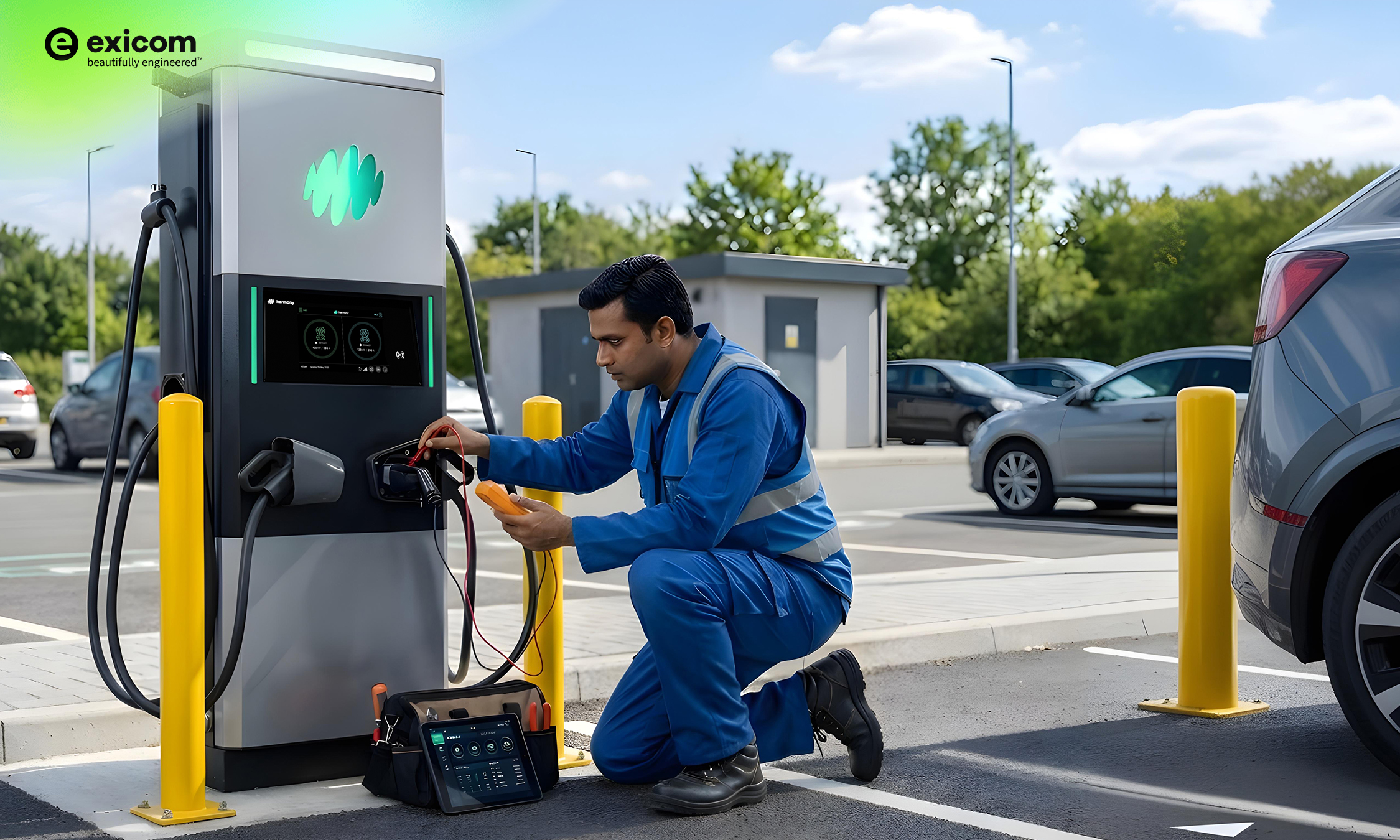Smart vs Standard EV Chargers: A Guide for Buyers
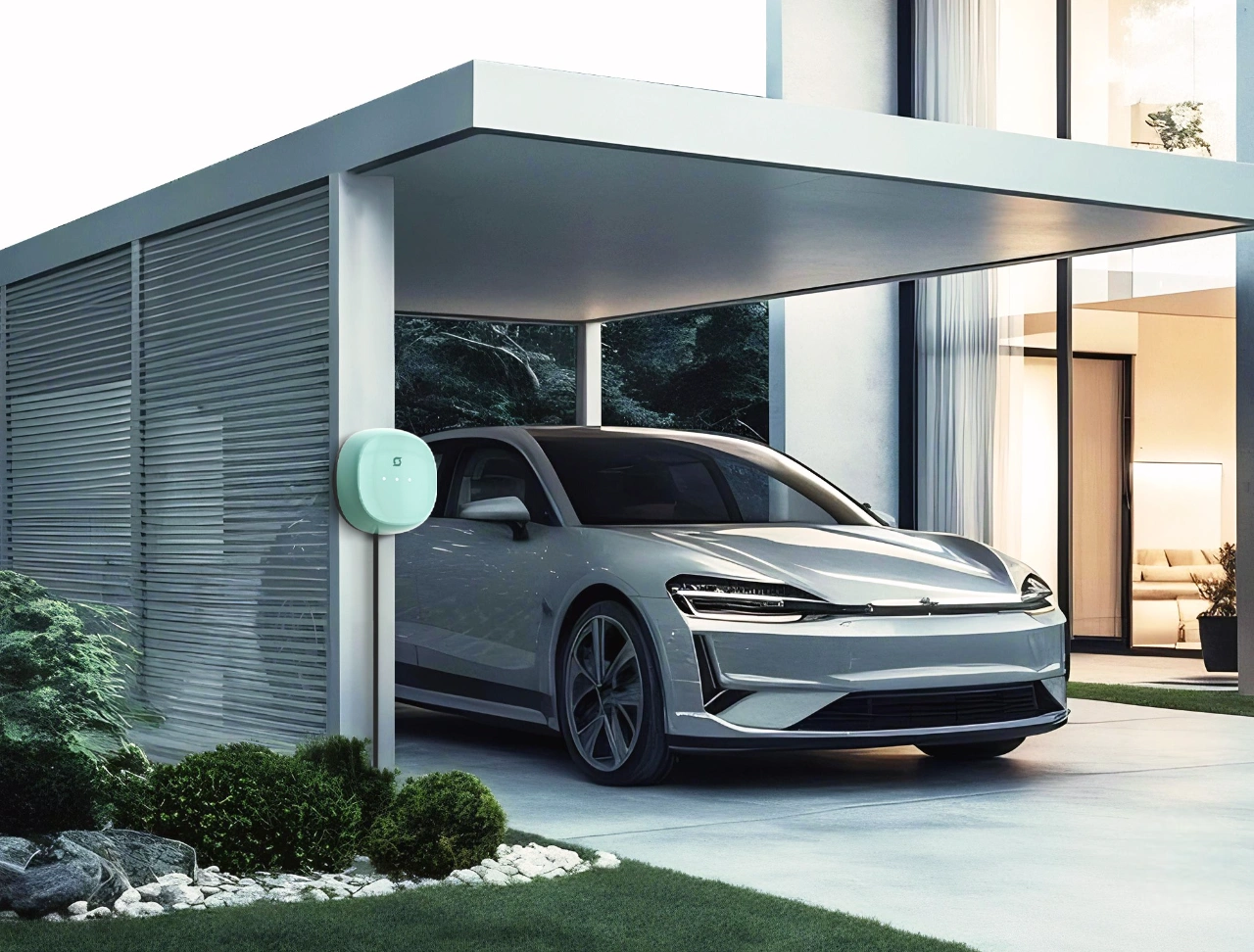
As electric vehicles (EVs) become more mainstream, a critical piece of the puzzle is how we power them, especially at home. For most EV owners, the charging journey begins in their driveway or apartment parking space. And while all chargers ultimately do the same job—transfer energy to your vehicle—the way they do it can vary drastically.
That’s where the distinction between standard and smart EV chargers becomes important. At first glance, it might just look like one has Wi-Fi and the other doesn’t. But under the hood, the differences are far more meaningful.
What is a Standard EV Charger?
A standard EV charger, also referred to as a “dumb” or “basic” charger, provides a straightforward electrical connection between your home power supply and your EV. Think of it like plugging in a kitchen appliance: you flip the switch, power flows, and the job gets done.
Key Characteristics of Standard Chargers:
- No connectivity or automation: Charging begins as soon as the vehicle is plugged in.
- Fixed power flow: These chargers cannot dynamically respond to changes in electricity load or grid demand.
- No remote control: You must be physically present to start or stop charging.
- Limited visibility: There’s no way to track energy consumption, cost, or charging behavior over time.
Standard chargers are generally more affordable and easier to install, making them appealing to new EV owners or those with simple needs. But as EV adoption scales and energy systems become smarter, their limitations become more apparent.
What is a Smart EV Charger?
Smart EV charging, or intelligent charging, is a system in which the electric vehicle communicates with the charging device. It is internet-enabled and integrates software to intelligently manage how and when your EV charges. It’s not just about convenience, it’s about making your vehicle and home energy ecosystem more efficient, sustainable, and future-ready.
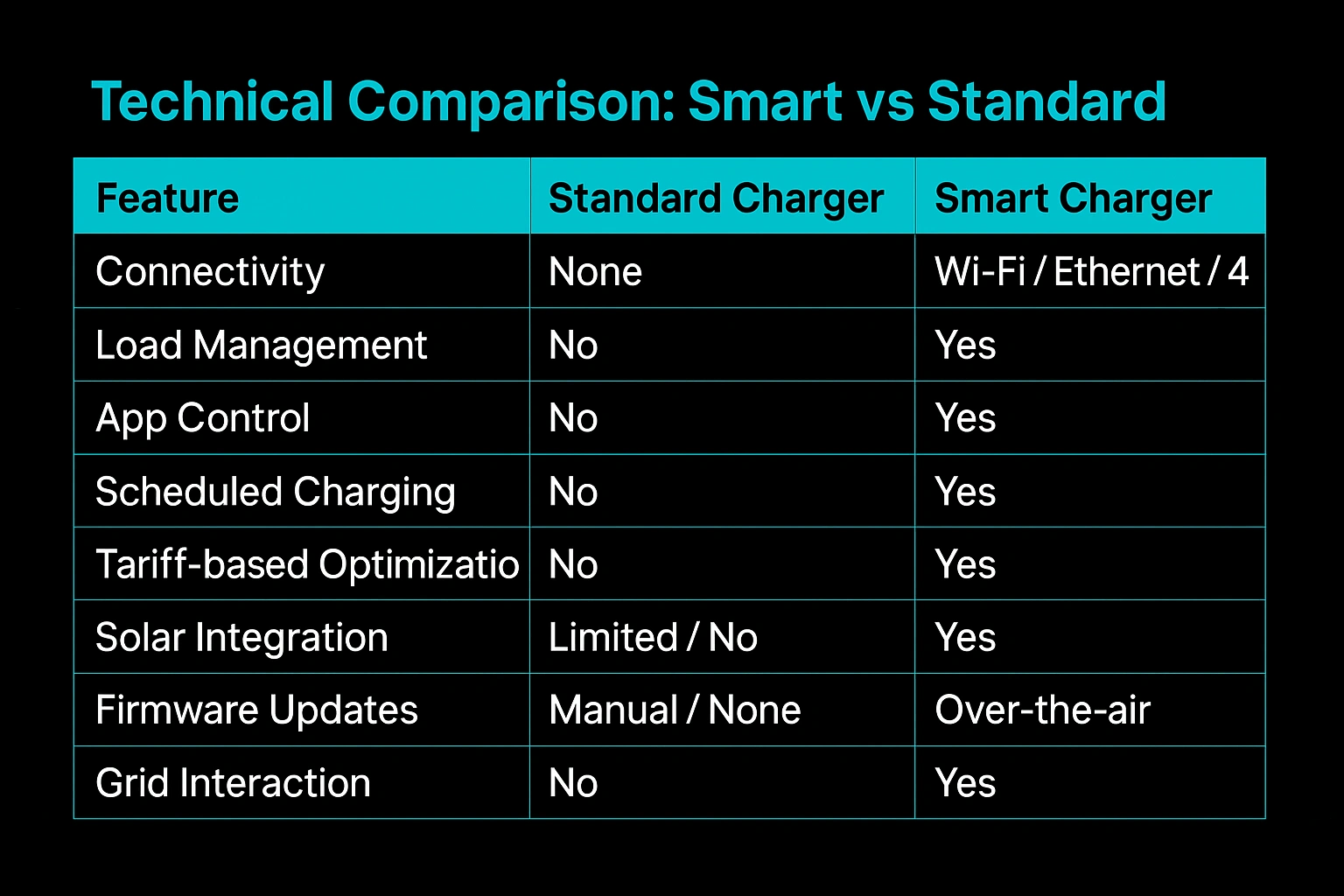
Why Smart Charging Makes Sense in the Indian Landscape
Smart ev charging makes perfect sense for India’s diverse energy landscape. With peak electricity demand surging in cities and apartment dwellers facing shared infrastructure challenges, smart chargers offer intelligent scheduling and load balancing to prevent overloads. In states like Maharashtra and Delhi, where time-of-day tariffs are rolling out, smart chargers help EV owners save up to 25 percent by shifting charging to off-peak hours. As rooftop solar adoption grows, with over 2 million homes and counting, smart chargers also enable clean, solar-powered mobility. By combining convenience, cost savings, and grid efficiency, smart charging isn’t just the future, it’s India’s practical path to sustainable EV adoption today.
Use Case: A Day in the Life with Smart EV Charging
You plug in your EV at 6 PM after work. A standard charger starts drawing power immediately, likely during peak rates. But a smart charger knows better. It waits till 11 PM when tariffs drop, all while monitoring your household’s energy use to avoid overload. If you have solar panels, it draws clean power first. And while your EV silently fills up, your phone shows real-time status updates, cost estimates, and usage insights. Come morning, the battery is full, the bill is lower, and the charging smarter, not harder. That’s everyday convenience with intelligence baked in.
Final Thoughts
Choosing between a smart and standard EV charger isn't just about price. It's about future readiness, energy efficiency, and convenience. Standard chargers meet basic needs, but smart chargers offer control, savings, and cleaner energy use. For India’s evolving EV ecosystem, they represent not just better tech, but a smarter way to charge forward.
FAQs:
Q: What's the main difference between smart and standard EV chargers?
A: Standard chargers simply power EVs. Smart chargers add remote control, scheduling, energy management, and data tracking.
Q: Can smart charging help save money?
A: Smart chargers optimize charging during off-peak hours, reducing energy costs.
Q: Is smart charging beneficial for India's energy grid?
A: Smart chargers in India use intelligent scheduling and load balancing, optimizing renewable energy and preventing overloads.
Q: Can smart chargers work with solar power?
A: Smart chargers can integrate with home solar systems, using clean, solar-generated energy to charge EVs, minimizing grid reliance.
Frequently Asked Questions
Lorem ipsum dolor sit amet, consectetur adipiscing elit, sed do eiusmod tempor incididunt ut labore et dolore magna aliqua. Ut enim ad minim veniam, quis nostrud exercitation ullamco laboris nisi ut aliquip ex ea commodo consequat. Duis aute irure dolor in reprehenderit in voluptate velit esse.
Lorem ipsum dolor sit amet, consectetur adipiscing elit, sed do eiusmod tempor incididunt ut labore et dolore magna aliqua. Ut enim ad minim veniam, quis nostrud exercitation ullamco laboris nisi ut aliquip ex ea commodo consequat. Duis aute irure dolor in reprehenderit in voluptate velit esse.
Lorem ipsum dolor sit amet, consectetur adipiscing elit, sed do eiusmod tempor incididunt ut labore et dolore magna aliqua. Ut enim ad minim veniam, quis nostrud exercitation ullamco laboris nisi ut aliquip ex ea commodo consequat. Duis aute irure dolor in reprehenderit in voluptate velit esse.
Lorem ipsum dolor sit amet, consectetur adipiscing elit, sed do eiusmod tempor incididunt ut labore et dolore magna aliqua. Ut enim ad minim veniam, quis nostrud exercitation ullamco laboris nisi ut aliquip ex ea commodo consequat. Duis aute irure dolor in reprehenderit in voluptate velit esse.
Lorem ipsum dolor sit amet, consectetur adipiscing elit, sed do eiusmod tempor incididunt ut labore et dolore magna aliqua. Ut enim ad minim veniam, quis nostrud exercitation ullamco laboris nisi ut aliquip ex ea commodo consequat. Duis aute irure dolor in reprehenderit in voluptate velit esse.

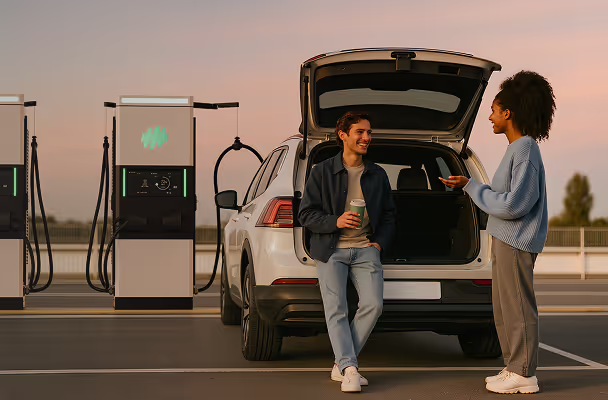
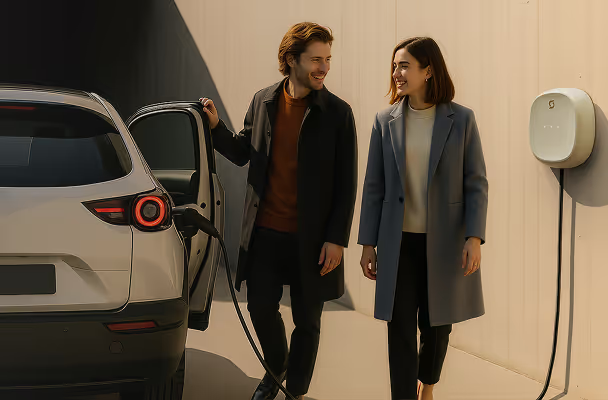


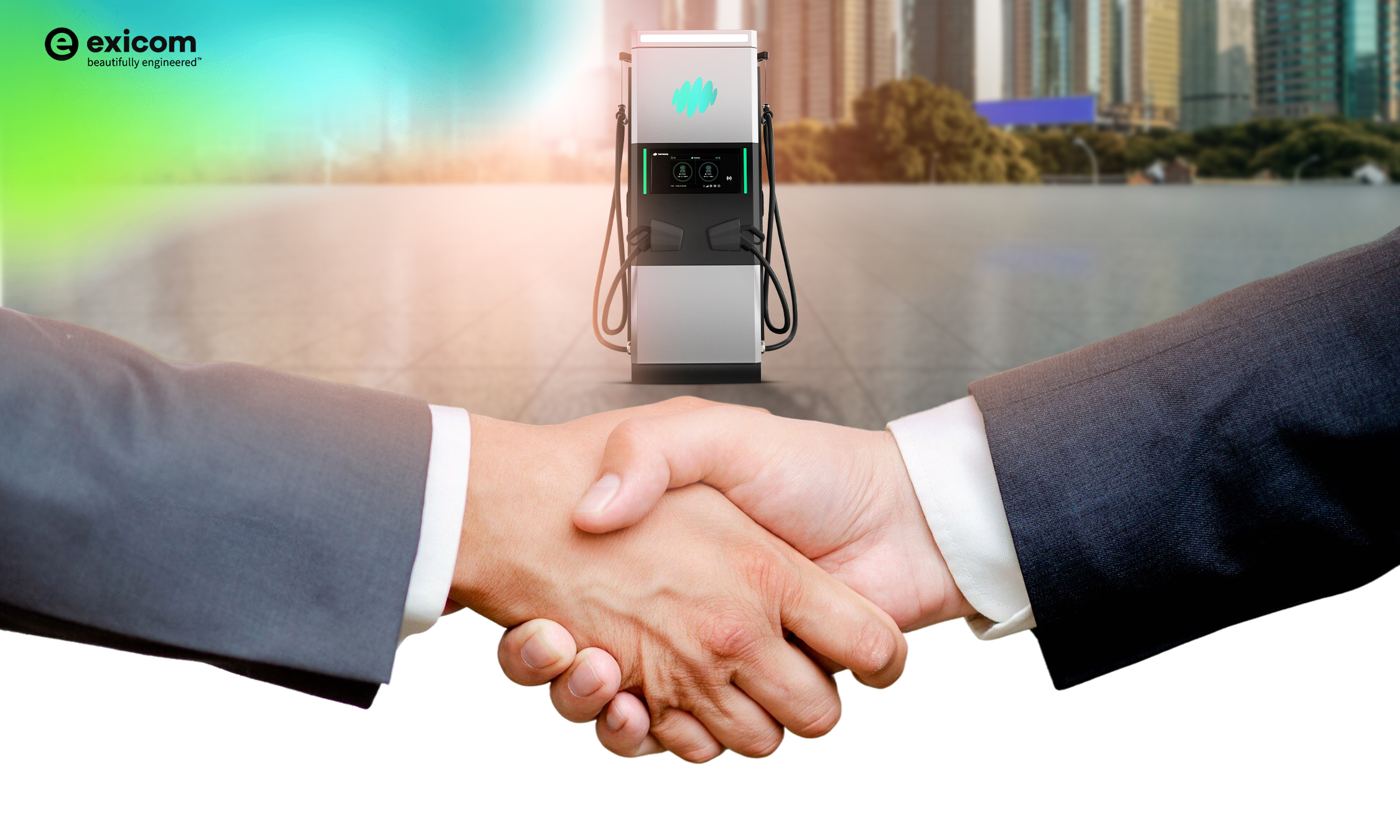
.jpg)
